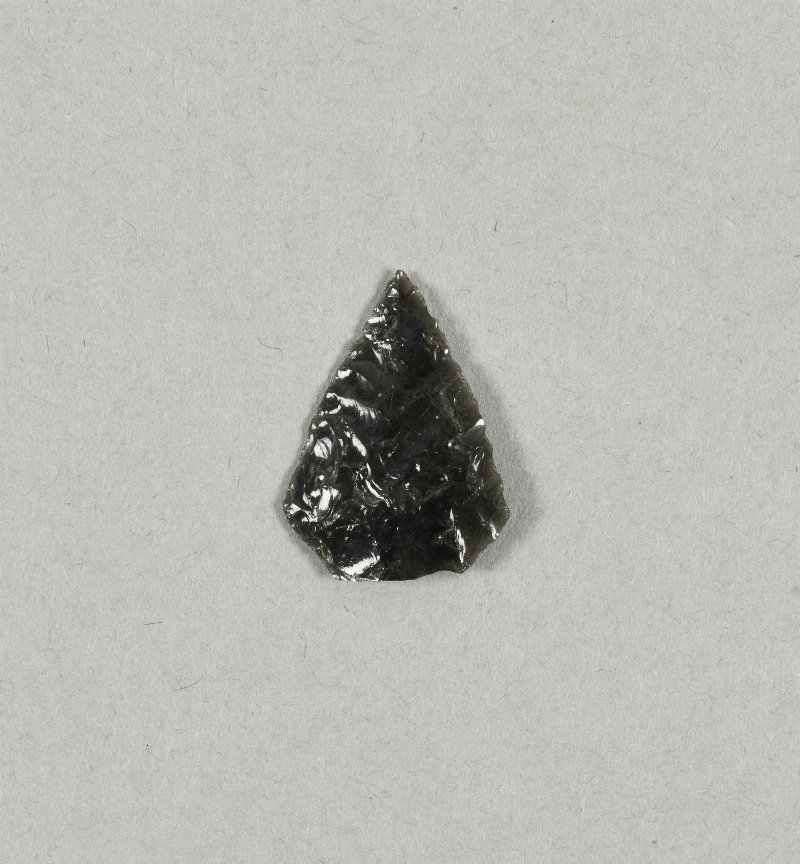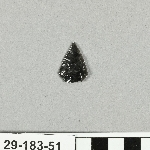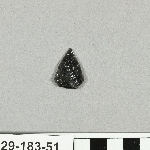Point
Arrowhead
29-183-51
From: Japan | Hokkaido | Uragawa | Uragawa Hill
Curatorial Section: Asian
| Object Number | 29-183-51 |
| Current Location | Collections Storage |
| Culture | Late Paleolithic (uncertain) | Jomon (uncertain) | Neolithic (uncertain) | Yayoi (uncertain) | Japanese |
| Provenience | Japan | Hokkaido | Uragawa | Uragawa Hill |
| Period | Late Paleolithic (uncertain) | Jomon (uncertain) | Yayoi (uncertain) |
| Date Made | 12,000 BCE - Yayoi Perod |
| Section | Asian |
| Materials | Obsidian |
| Technique | Flaked |
| Description | Point or arrowhead. Bifacially retouched stone tool made of black obsidian. Diamond shaped with one end broken off. Thin but not translucent. Arrowheads were used during the Late Paleolithic age and continued to be used during the Yayoi period. They appear in sites throughout Japan. Arrowheads hafted onto arrow shafts and harpoons have been found in archaeological contexts indicating they were used for hunting and fishing. 29-183-40 and 29-183-51 are partially broken. From the remaining sections they both appear to be diamond-shaped and are the same in form as 13202 and 29-183-43, although smaller in size. 29-183-51 is particularly thin and finely retouched. Like 13202 and 29-183-43 they were probably made during the Late Paleolithic, Jomon, or Yayoi Periods. |
| Length | 2.5 cm |
| Width | 1.8 cm |
| Credit Line | Received from various sources, pre-1929 |
| Other Number | None - Field No SF |
Report problems and issues to digitalmedia@pennmuseum.org.




